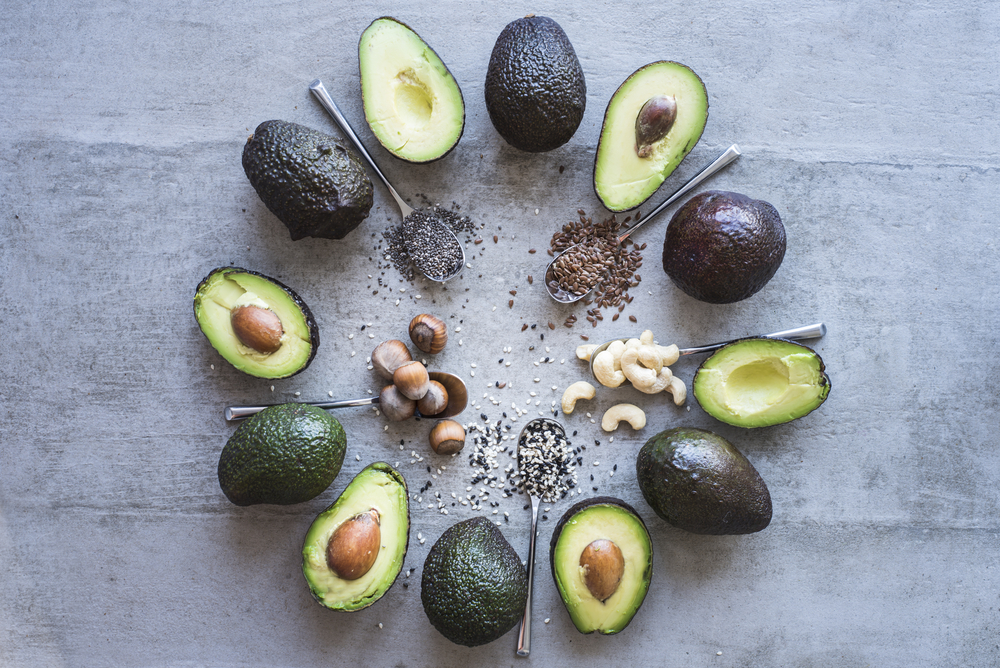Over the past decade or so, carbohydrates in the American diet have both gained and fallen out of favor, sometimes so quickly that women can be left in a state of confusion. Should their diets be low carb? High carb? Some carbohydrates are touted as being disease fighters – yet others, we’re told, lead to disease. What’s the real story here?
Protein, Carbs and Fat in the Diet
We all recognize that our diets should consist of proteins, carbohydrates and fats.
Protein is essential for repairing and building muscles, organs, bones, hair, skin and nails. Protein is critical for sustaining life.
Fats provide your body with energy and are critical in moving certain vitamins through your body, as well as providing insulation for body temperature regulation. The essential fatty acids in fats play a major role in managing inflammation, blood clotting and brain development. For more information, read the article, “Balancing Your Omega-3 Fatty Acids – Essential For Health and Long Life.”
Carbohydrates supply energy to the body; they are the body’s preferred source of energy. Carbohydrates play an important role in metabolism, but need to be combined with fats, minerals and vitamins for optimum health. Your brain is dependent on a steady supply of glucose (simple sugars) that we get from carbohydrates. Brain cells use only glucose for energy.
Simple or Complex Carbohydrates – What’s the Difference?
One reason that carbohydrates have gotten mixed reviews is because they are so diverse. Some carbohydrates are much more nutritious than others. Some can feed inflammation, systemic yeast and wreak havoc with your blood sugar. And still others are full of fiber – which helps maintain blood sugar levels and help you feel full!
Generally, the more micro and macronutrients and fiber your carb choice has, the better it is for you. These are known as complex carbs. These complex carbs take longer to breakdown in your body and produce a more moderated insulin surge. The more refined or ‘simpler’ a carbohydrate choice is, the greater chance that it’s going to give you a quick burst of energy causing a quick spike in insulin.
Glycemic Index and Glycemic Load
The Glycemic Index (GI) helps us fully understand the effects of carbohydrates on your body and their potential for increasing blood sugar and insulin levels. The GI is a scale that ranks foods numerically by their potential for increasing insulin and blood sugar levels. Foods with a low GI increase sugar slowly, those with a high GI increase blood sugar more rapidly.
While Glycemic Index calculates how quickly the carbs in a particular food convert into sugar in the blood, the Glycemic Load (GL) estimates the impact of carbohydrate consumption. Watermelon, for instance, has a high GI, but the typical serving of this sweet fruit does not contain much in the way of a carbohydrate, so the Glycemic Load of eating it is low.
Glycemic Load is more of a qualitative than quantitative measurement. For instance, pasta and carrots may gave the same GI, but they don’t have the same GL. The pasta is a refined carbohydrate that breaks down quickly in the body and the carrots are complex carbs which take longer to break down. Carrots have a high fiber content which also affects how quickly the carb breakdown will happen.
The higher the Glycemic Load of a food, the greater chance that you will experience an insulin spike which will potentially affect your metabolism. All of this consideration should be given to the nutrients available in the carbohydrates you choose! Using our same example of pasta and carrots – the pasta has little nutrient value, yet carrots are full of powerful nutrients and fiber to help make you feel full longer!
Should you eliminate all carbohydrates?
Some women might feel it’s easiest to simply remove all carbohydrates from their diets. I don’t recommend this; it’s simply not necessary and it’s not healthy either! We need carbs to maintain fuel our brain function and maintain wellness.
What is important is the carbs you choose and your portion size. When practicing healthy eating, make every choice count! You can’t go wrong choosing carbs which have gone through little processing and contain high amounts of nutrients and fiber.
I encourage women to look at carbohydrates in three categories: slower acting, intermediate acting and fast acting. Below is a simple chart which may help you in making good carb choices:
| Slower Acting | Intermediate Acting | Fast Acting |
| Whole Grains | White potatoes | Juice |
| Milk | Carrots | White pasta |
| Nuts | Beets | Cookies |
| Quinoa | Sweet Potatoes | Cakes |
| Whole brown rice | Fruits | Sugary cereals |
| Millet | Winter squash | Alcohol |
The 85/15 rule
I always tell my patients to follow an 85-15 guideline when it comes to their nutritional intake. Focus on healthy eating 85% of the time – if you choose to indulge or splurge the rest of the time – enjoy! I talk with my patients about some helpful and easy tips to prevent the carb crash that many women experience when eating too many sweets.
- Choose sweets that contain nuts and whole grains – many of these will be flourless! These delicious treats pair the sweetness with protein effortlessly.
- When choosing chocolate, choose the darkest possible! Dark chocolate contains less sugar and provides a good dose of antioxidants.
- Balance your sweet choice with some protein! Have a piece of cheese or some nuts when enjoying a slice of your favorite cake.
- Have a large glass of water with your treat! Surprisingly, quenching your thirst can be very satisfying and may help your calm your cravings.
- When enjoying a treat – take the time to really enjoy it. Enjoy the taste, the texture, the scent – we’re much more likely to be satisfied when we slow down and can really enjoy our food.
- If you know you are insulin resistant, choose wisely. For you, a little sugar goes a long way!
As you make choices about your food intake, remember that your body needs carbohydrates for a well-balanced diet. The type of carbohydrates you choose is important! Choosing nutrient rich complex carbs will help you avoid the difficult cycle of cravings, insulin spikes and crashes. Striving for balance with carbohydrates has great benefit in your day to day energy, clear thinking, vitality and weight management.








